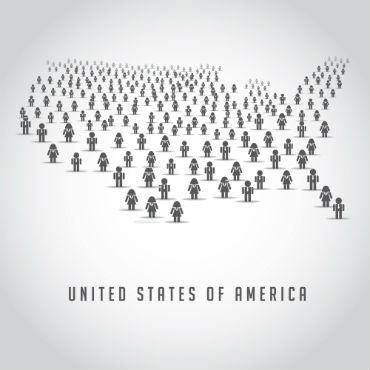Commerce chief indicates flexibility on 2020 census funding

Despite Trump's request for a $1.4 billion cut to the Department of Commerce, secretary Wilbur Ross indicated room for some budgetary flexibility to pull off the 2020 census.

The Department of Commerce is not spared from the steep cuts requested across civilian agencies in President Donald Trump's budget proposal for fiscal year 2018. The request outlines a $1.4 billion funding decrease across the IT-intensive department.
However, at a May 25 House Appropriations subcommittee hearing, Secretary Wilbur Ross indicated room for some budgetary flexibility on at least one component: the decennial Census.
While Trump's proposal includes an uptick of about $50 million over the enacted fiscal year 2017 budget for the Census Bureau, his fiscal year 2018 request falls about $200 million short of former President Barack Obama's figure. That has elicited concern from lawmakers and Census watchdogs about the fate of the Constitutionally required count.
Census estimated in October 2015 that new, tech-based methodologies could save the government over $5 billion compared to repeating the paper-based enumeration, but since then, the bureau has been repeatedly dinged by the Government Accountability Office for unreliable cost estimates.
Earlier in May, outgoing director John Thompson testified before the same subcommittee that the bureau was experiencing IT cost overruns, had to cancel or suspend important programs due to budget uncertainty and that a new lifecycle cost estimate would land this summer.
Ross is prioritizing a reliable cost estimate as an immediate need.
"The first thing we're trying to do is get our arms around what the real numbers are likely to be," he said. "It's alarming that at this relatively early stage, when only a small portion has actually been spent, they are already calculating very major overrun in the back end."
Ross added the department has "put together a task force consisting of folks from the secretariat and from [the Office of Management and Budget], plus two outside consultants with great deal of experience in prior censuses."
Ross said the task force had two purposes: first, to identify the "most probable budget course," and second, to estimate "an outside parameter of how bad could it get if things really get totally out of control."
"Once we have those two, what we will be working on is what is it that can be done on a remedial basis in each of the various phases that are yet to be done to bring it back under control," he said.
However, Ross stated that the department's "primary objective…is an accurate enumeration."
"We do not intend to sacrifice that at all," he said. "If it is going to cost more, we will come to you, we will explain why and we will try to work with you on solutions."
Phil Sparks, co-director of the watchdog group Census Project, told FCW that he expects cutbacks to the 2018 end-to-end test, the dress rehearsal for the decennial, either by "dropping some elements of the test or dropping one or more test sites."
With Thompson's retirement effective at the end of June, Commerce faces a search for both a new permanent Census director and deputy director.
On that front, Ross testified that Commerce is "actively recruiting" for the vacant posts, and is "looking within Census and outside Census" for both positions.
On May 9, a Commerce spokesperson told FCW via email it would designate an acting director "in the coming days." To date, however, an acting director has not yet been named.
Shortly after Thompson's announcement, former Commerce CIO Steve Cooper told FCW he'd like to see a significant progress made in the replacement for Thompson in "about four to six weeks."
"If this thing goes three, four, five months," Cooper added, "that's a long delay that will hurt the Census."
NEXT STORY: DARPA Picks Boeing To Build Its New Space Plane


